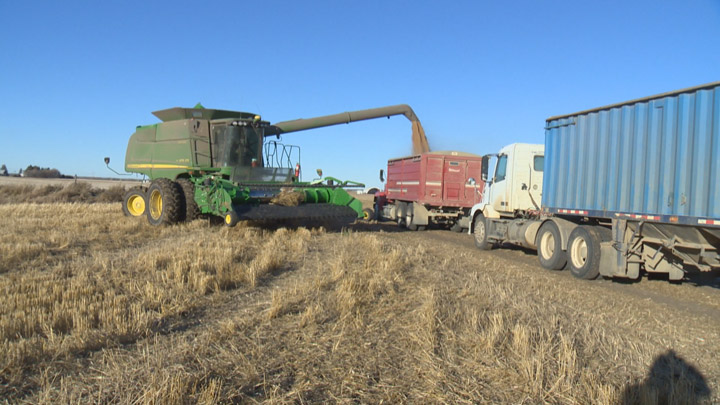Saskatchewan Agriculture reported yields are on par with the 10-year average as harvest wraps in in the province.

Officials said yields vary widely in the province depending on the seeding date and the amount of moisture received during the growing season.
READ MORE: SGI Canada aims to better understand agricultural industry with Farm Business Unit
Yields in most southern regions and some central regions have been impacted by this summer’s hot and dry conditions while some farmers in northern regions are reporting higher than normal yields due to timely moisture.

Get daily National news
There are still some flax, soybean and sunflower crops left to combine.
Crop quality is being reported as well above average, with the majority of the crops falling within the top two quality grades.
Much needed moisture is now required to replenish the topsoil and subsoil.
READ MORE: Southern Saskatchewan in drought for almost a year
Most producers said the subsoil is very dry and seeding conditions next spring will be impacted if significant precipitation is not received.
Cropland topsoil moisture is rated 37 per short and 23 per cent very short, with hay land and pasture topsoil moisture rated 35 per cent short and 33 per cent very short.
The lack of moisture has had an impact on winter cereal seeding, with the number of acres seeded below average in many areas.
READ MORE: SSGA sets up relief fund to help ranchers impacted by wildfires
Livestock producers in the southern regions said there are concerns they will have inadequate feed supplies heading into the winter and shortages are likely.


Comments